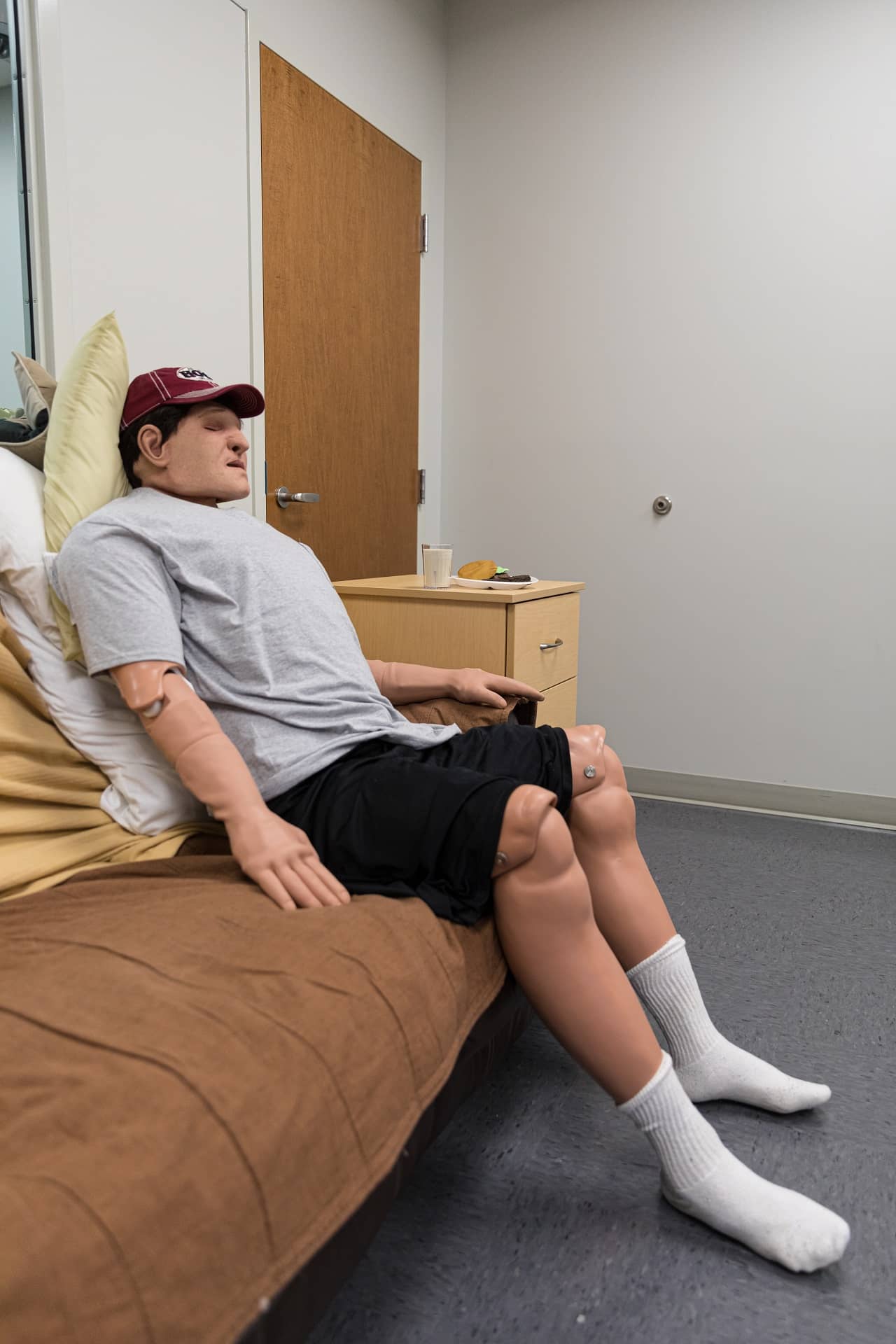Policies
Simulation Lab Policy
 The following policies and guidelines have been developed in order to preserve the
resources of the Simulation Lab and protect the safety of those utilizing the learning
center. The Simulation Lab is a place to integrate high fidelity simulation into undergraduate
education to enhance the educational experience of our students. Using simulators,
students will experience real life scenarios in a safe clinical environment.
The following policies and guidelines have been developed in order to preserve the
resources of the Simulation Lab and protect the safety of those utilizing the learning
center. The Simulation Lab is a place to integrate high fidelity simulation into undergraduate
education to enhance the educational experience of our students. Using simulators,
students will experience real life scenarios in a safe clinical environment.
- All learners will be in uniform/clinical practicum attire, including nametag, while participating in simulation learning activities. Refer to Professional Appearance Policy for proper clinical practicum attire. If not followed, this will result in a Performance Improvement Plan.
- Learners should bring standard equipment (stethoscope and assessment tools) required for clinical practicum during simulator experiences.
- Learners will wash their hands to remove stains, ink, or oils prior to working with simulators.
- No food or beverages are allowed in the simulation or debriefing areas. Scheduled breaks are allowed throughout each simulation lab time.
- Standard precautions will be adhered to in the simulation area as it is in the clinical practicum area.
- All users of the Simulation Lab are required to ensure that at the end of their practice session, the lab is clean and ready for use by the next group. This entails needles in sharps container, empty syringes put in trash, nothing in patient bed, etc.
- All students will sign a confidentiality statement prior to their simulation experience that prohibits the sharing of details and activities with learners who have not participated in the learning experience. A violation of this will be treated as a breach of patient confidentiality per HIPAA (the Health Insurance Portability And Accountability Act).
- Learners will be recorded for evaluation purposes.
- Learners will not be allowed in the Simulation Lab without a simulationist.
- Supplies and equipment used in simulation scenarios are to be left in the Simulation Lab.
- Please do NOT do the following on the simulator: place PO medication in the simulator’s mouth; REMOVE an IV from a simulator, use betadine, or stick simulator with any needles.
- No cell phones or other electronic devices are allowed in the Simulation Lab without facilitator’s approval. These items must be switched off or to silent and placed with the student’s belongings in the student lockers.
- Anyone not following these rules will be asked to leave the Simulation Lab and receive a Performance Improvement Plan placed in their file.
Lab Attendance Policy
Students are required to attend simulation lab in clinical uniform that is compliant with the Professional Appearance Policy.
If a student is less than 15 minutes late for simulation lab and has notified an instructor, the student will be able to participate in simulation and will have a written Performance Improvement Plan by a simulation facilitator completed and placed in the student’s file.
If a student is more than 15 minutes late or absent from simulation, the student will need to reschedule a make-up time. The student will need to contact Dr. Teal to reschedule. A written Performance Improvement Plan will be completed by a simulation facilitator and placed in the student’s file. All make-up simulation dates/times are at the discretion of the simulation coordinator to allow for an optimal learning experience.
Online Simulation Netiquette Policy
Some clinical courses will have an online component to simulation. These simulations may be accessed through a course in Blackboard or using Zoom. The following statements apply to either scenario.
- Treat your instructor and peers with respect and kindness.
- Give the instructor and peers your full attention and actively participate in the discussion.
- Ensure you have the appropriate technology for the session.
- Students should be visible via their webcam during the session.
- Designate a quiet private space for the session and do not walk around with your device.
- Coordinate your personal responsibilities to limit interruptions or distractions while on the session.
- Do not use personal devices (phone), web surf, or have non-relevant "side discussions” during the session.
- Verbal and non-verbal communication should be professional and appearance professional (we do expect you to wear scrubs during this clinical experience).
- Please do not record sessions or take pictures of others on personal devices. We will record the sessions on our software.
- Missed simulation exercises, which are not in line with the University's excused absence policy, are considered missed clinical time and your instructor will be notified. Missed time will be considered in your final performance evaluation and can affect your clinical grade.
Students must read the Confidentiality and Audiovisual Recording Agreement and sign and return the Simulation Lab Policy Agreement form (PDF).